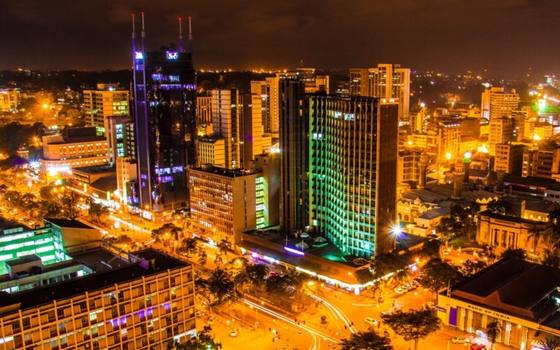
8 Of The Best Emerging Career Opportunities in Africa
The 21st century is the African century. This is because Africa has the fastest growing population of youth, which makes it the youngest continent in the world. By 2050, over one-third of the global working-age population will be residing in Africa. That’s why many people view Africa as a potential gold mine for job opportunities.
But how can you take advantage of this trend? What are some of the best emerging career opportunities in Africa? Let’s find out!
Data Analysis and Data Science
There’s been a surge of interest in data science among African companies. Many African businesses are seeking to leverage data to improve performance. There are a few reasons why data science is crucial in Africa.
First, many African countries rely heavily on agriculture. With the increased adoption of technology in agriculture, farmers will need data scientists to help them integrate sensors and other technology into their operations. Data science is also important in African cities, which are rapidly growing. As urban areas expand, there’s a growing need for data scientists who can help city planners make smarter decisions.
3D Printing and Manufacturing
As Africa develops, new manufacturing industries will emerge. 3D printing is one technology that’s likely to grow in popularity. Many African entrepreneurs are using 3D printing to manufacture goods that they sell online and locally. Some of the goods being produced by African manufacturers include toys, fashion accessories, medical devices, and even houses.
As online shopping increases across Africa, industries like 3D printing will likely see an uptick in demand. If you’re looking for a career in manufacturing, it’s a good idea to get a handle on 3D printing technology.
Digital Marketing and e-Commerce
In the next decade, more Africans will access the internet on a regular basis than any other continent in the world. The number of internet users in Africa is expected to increase from 472 million in 2019 to over 1 billion by 2025. That’s why it’s a good idea to explore career options related to digital marketing and e-commerce.
These industries will likely experience significant growth in the coming years. If you’re interested in these types of careers, it’s a good idea to familiarize yourself with the latest trends in digital marketing and e-commerce. You can find free online courses to help you learn more about these skills, or approach a marketing agency to learn and gain practical experience.
Development of Smart Cities
As Africa’s urban population increases, so will the demand for smart cities. A smart city uses a combination of sensors, data analytics, and technology to improve the efficiency and quality of life for residents.
Many African nations are beginning to implement smart city initiatives. If you’re interested in working in the urban planning and design industry, it’s a good idea to familiarize yourself with smart city initiatives in Africa. This will help you stay informed about the latest developments in the industry.
Robotics and Automation
Robotics and automation are expanding in Africa. As the economy grows, African businesses are increasingly investing in automation. This is because automation is a cost-effective and efficient way to improve business performance.
If you’re interested in a career related to robotics and automation, it’s a good idea to familiarize yourself with the latest developments in this industry. You can do this by visiting robotics conferences and exhibitions.
Sustainable Mobility
As African cities develop and become more densely populated, they’ll need more sustainable transportation options. In many African cities, public transportation is not as effective as it could be, which is why many people rely on personal vehicles.
As cities become more crowded and traffic congestion becomes a growing problem, sustainable public transportation will become increasingly important. If you want to leverage career opportunities in sustainable mobility, you might consider working with the public transportation department in an African city.
Environment and Climate Change
Africa is experiencing serious environmental challenges, especially related to climate change. Many African countries experience significant droughts and flooding due to climate change. If you’re interested in a career related to the environment and climate change, you can find work in Africa. To learn more about how you can get involved in this type of work, visit websites like the United Nations Environment Programme or the African Union Environment.
Agritech and Food Supply Chain
As the population of Africa continues to grow, so will the demand for food. In many African countries, the food supply chain is not ideal. To meet the needs of a growing population, African businesses are investing in agritech and food supply chain solutions. If you’re interested in a career in agritech, you can find work in Africa. To learn more about how you can get involved in this type of work, visit websites like the Alliance for Food Security in Africa.
Conclusion
In the next decade, more Africans will have access to the internet than any other continent in the world. As the population of Africa grows, there will be an increased demand for new technologies and career opportunities.
It is a smart idea to pick a few skills among the merging ones so you can compete int the job market. Thank you for reading. Share this article a young African career aspirant.
